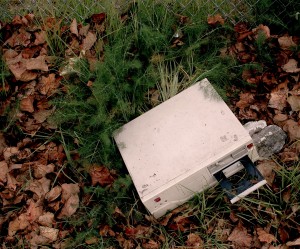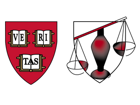Posts filed under 'audio'
 Listen:or download | …also in Ogg
Listen:or download | …also in Ogg
You’ve likely heard of Silk Road – the black market e-commerce hub that was shutdown in 2013 for becoming a magnet for vendors of illicit goods. But the story of its shutdown, and the investigation and trial that followed, is complicated enough that we need a guide.
On this week’s podcast Berkman Affiliate Hasit Shah brought together members of the Berkman community to speak with journalist and legal expert Sarah Jeong about what it was like to follow the Silk Road trial, and how the justice system copes when technology becomes a central part of a case.
****
Listeners: We need your stories! Was there ever a time you used the web to be anonymous? Have you ever had a digital alter ego? If you’ve ever used a blog or a social media account to do something you didn’t want connected to your real identity, we want to hear about it! We’ve set up a special hotline. All you have to do is call-in and tell your story on our voicemail, and we’ll feature you on an upcoming episode. (617) 682-0376.
Reference Section
More about Sarah Jeong
Follow Sarah Jeong’s coverage of Silk Road and more at Forbes
Find out more about Hasit Shah
Tweet us! Subscribe to us on Soundcloud, iTunes, or RSS.
This week’s episode produced by Hasit Shah with Daniel Dennis Jones.
November 20th, 2015
 Listen:or download | …also in Ogg
Listen:or download | …also in Ogg
On your computer, you don’t ever really “take out the trash.” Data doesn’t get picked up by a garbage truck. It doesn’t decompose in a landfill.
It just accumulates.
And because space is becoming less and less of an issue — hard drive space keeps getting cheaper, and a lot of the apps we use have cloud storage anyway — deleting our files is a thing of the past.
We become Digital Hoarders.
But what happens when we dig up those old files from years ago? Those old emails from our boyfriend or girlfriend, those old digital photos of family, those long rambling journal entries?
On this week’s podcast we talk to three researchers who all have different stories of digital hoarding, deleting, and recovering.
Jack Cushman, Judith Donath, and Viktor Mayer-Schönberger talk about the value of remembering, the value of forgetting, and what we trust to our machines.
Reference Section
A portion of this episode appeared on WGBH’s Innovation Hub
How are people using social media to remember and forget?
On the Snapchat Boom and the rise of anonymous messaging
Photo courtesy of memestate
Music courtesy of Podington Bear
Tweet us! Subscribe to us on Soundcloud, iTunes, or RSS.
This week’s episode produced by Elizabeth Gillis with Daniel Dennis Jones, and Mary Dooe and Kara Miller from WGBH’s Innovation Hub.
November 6th, 2015
Crowdwork — “the process of taking tasks that would normally be delegated to an employee and distributing them to a large pool of online workers, the ‘crowd,’ in the form of an open call” — has become an entire category of global employment we could never have imagined existing a few short years ago.
In this talk, Mary L. Gray — Senior Researcher at Microsoft Social Research — presents results of a two-year ethnographic and qualitative study of the cultural meaning, political implications, and ethical demands of crowdwork in India and the United States.
The study examines the emergence of an Ambient Workforce — a distributed, always-on, at-the-ready, expansive labor market, dependent on a mix of intense bursts of activity AND a “long tail” of idling — and how society might help shape this explosively growing sector.
 Download the MP3
Download the MP3
…or download the OGG audio format!
More info on this event here.
November 5th, 2015
Women are disparately impacted by harassment on the Internet. Harassment can be framed as a civil rights problem, with legal solutions proposed and vitriol directed towards platforms for failing to protect female users. But, as Sarah Jeong — a lawyer and journalist who covered the Silk Road trial for Forbes — suggests, the Internet has figured out interesting ways to deal with other kinds of online speech — like spam and malware. And using this lens could inform the fight against online harassment.
 Download the MP3
Download the MP3
…or download the OGG audio format!
More info on this event here.
October 30th, 2015

Listen:or download | …also in Ogg
Facebook has had a lot of trouble with misogynistic speech. A few years ago, several women’s groups joined together to petition Facebook to work harder to block misogynistic pages, posts, and replies. At the time Facebook had strict standards against hate speech that was racist or anti-semitic — such speech would be blocked or take down. These groups simply asked that gendered hate speech receive the same treatment.
It was ironic, people said, that Facebook would commonly take down photos of women breastfeeding in response to complaints. Such content was deemed pornographic. But when Facebook users complained about comments that were misogynistic or harassing women, Facebook defended their decisions not to take them down. Their reasoning was one of semantics: Comments that described gendered violence didn’t actually threaten violence, they would argue. But — campaigners pointed out — misogynistic content actually is threatening, and creates an unsafe environment for speech.
The campaigners won. But this isn’t the first time Facebook’s policies on censorship have been questioned by the public. And it won’t be the last.
Right now, many European countries are asking Facebook to more strictly police hate speech on the platform.
Jillian York is a writer and the director for International Freedom of Expression at the Electronic Frontier Foundation. She joined us to talk about the most recent debates about online speech, and why she questions whether these kinds of decisions should be left up to Facebook at all.
Reference Section
Jillian’s recent post “On Facebook’s Ideology”
Photo courtesy of zubrow
Music courtesy of
Tweet us! Subscribe to us on Soundcloud, iTunes, or RSS.
This week’s episode produced by Elizabeth Gillis and Daniel Dennis Jones.
October 30th, 2015
In this conversation with Jonathan Zittrain, Cory Doctorow — author and EFF Special Advisor — explains how he plans to kill all DRM in the world forever, within a decade.
 Download the MP3
Download the MP3
…or download the OGG audio format!
More info on this event here.
October 26th, 2015
 Listen:or download | …also in Ogg
Listen:or download | …also in Ogg
A recent New York Times survey of the top 50 news sites showed that blocking ads while surfing their mobile news sites could save up to 14 megabytes per page loaded. 14 megabytes adds up to 30 seconds over 4G, and, if you’re on a restricted data plan, it would cost you 30 cents per page, all of that money going to your mobile provider, not to the content publisher.
But for content publishers, and the ad providers that keep them alive, ad blocking poses a huge problem. Most of the commercial web as we know it exists because of advertising. When web users aren’t loading ads on their favorite ad-supported site, or otherwise paying the site – by subscribing, sponsoring, buying merchandise – the site is losing out on cash.
And we’re talking serious cash. Digital ad spending is expected to reach $170.17 billion in 2015, with $69 billion – 40% of ad spending – in the mobile space.
That’s a lot of money to spend on ads that might not even be seen. Ad block software is now in use by 200 million people around the globe.
Doc Searls is a journalist and author who worked in the ad industry years ago. He has referred to ad blocking as “the biggest boycott in human history.”
Radio Berkman producer Elizabeth Gillis spoke with Searls about what’s going on in the Ad Block Wars, and the part played by users, like you.
Reference Section
Doc’s Ad Block Wars series
Photo courtesy of Flickr user piratechikan
Creative commons music from Neurowaxx and Podington Bear
Tweet us! Subscribe to us on Soundcloud, iTunes, or RSS.
This week’s episode produced by Elizabeth Gillis and Daniel Dennis Jones.
October 22nd, 2015
In 2013, the Berkman Center helped to launch the Digital Public Library of America (DPLA), which brings together the riches of America’s libraries, archives, and museums, and makes them freely available to the world. This online portal delivers incredible resources and artifacts from all over America to the fingertips of students, teachers, scholars, and the public at large. Meanwhile at Harvard and many universities across America, libraries of all kinds are negotiating the opportunities of the digital with enterprise, ingenuity, and experimentation.
In this conversation DPLA Executive Director Dan Cohen, Faculty Director of metaLAB (at) Harvard Jeffrey Schnapp, and librarian and technologist Andromeda Yelton explore how libraries are drawing on their past, and using technology to create new resources for scholarship and education.
 Download the MP3
Download the MP3
…or download the OGG audio format!
More info on this event here.
October 13th, 2015
Less than 15 years after the RSS 2.0 standard was developed (by Berkman Center fellows!), paving the way for the subscribe-able audio medium we know as “Podcasts,” four leading figures in the invention and re-invention of podcasting come together to discuss the past, present, and future of serialized audio content.
Chris Lydon (Radio Open Source), Jake Shapiro and Kerri Hoffman (PRX), and Benjamen Walker (Radiotopia’s Theory of Everything) are led in conversation by Berkman Center Faculty Co-Director Chris Bavitz.
 Download the MP3
Download the MP3
…or download the OGG audio format!
More info on this event here.
October 13th, 2015
Researcher Camille François leads a discussion of the “Mozilla Delphi Cybersecurity 1.0. Study: Towards A User Centric Policy Framework” with Berkman community members Josephine Wolff, Andy Ellis, and Bruce Schneier, who participated in the study.
More than 30 leading cybersecurity experts from a wide variety of backgrounds – including academia, civil liberties, government and military, security, and technology – participated in the study, which tackles the following questions: what is the role of policy in cybersecurity? How consensual is the definition of cybersecurity? What are the current priorities for cybersecurity policy? Which issues get too little or too much attention? What are measures that a diverse set of cybersecurity actors can agree on as being both feasible and desirable?
 Download the MP3
Download the MP3
…or download the OGG audio format!
More info on this event here.
October 7th, 2015
Next Posts
Previous Posts
 Listen:or download | …also in Ogg
Listen:or download | …also in Ogg Listen:
Listen:


